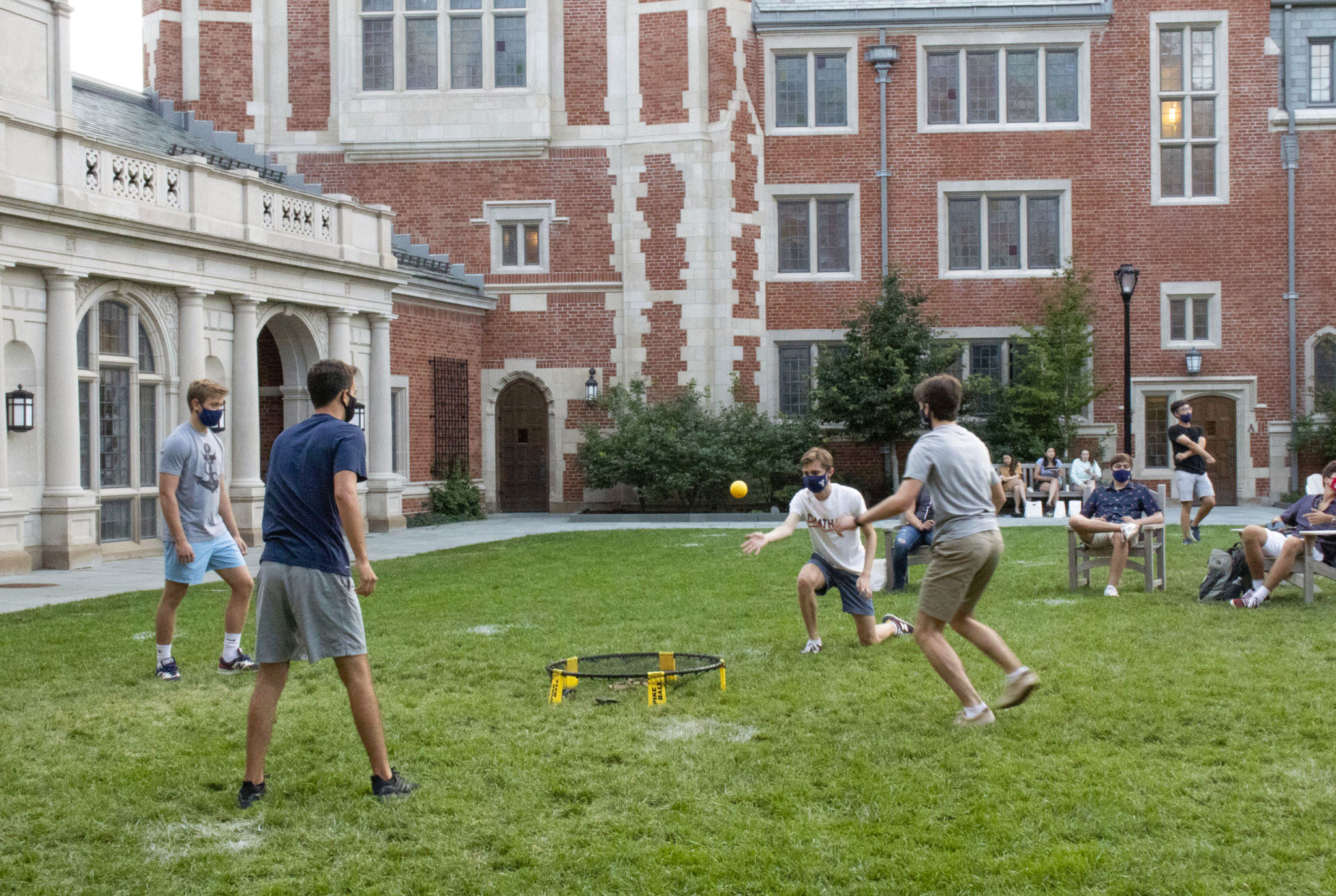After two years of COVID-19 disruptions, intramurals are back
For the first time in two years, the Yale intramurals program will return in full, resuming old traditions like broomball and water polo.

Lily Dorstewitz, Staff Photographer
Intramural sports are returning to Yale’s campus in full force for the first time in two and a half years.
Campus intramurals have slowly returned to normal since the beginning of last year. The past two years saw socially-distant and masked events like cornhole and soccer. This upcoming school year will mark the first time since March 2020 that Yale will offer all their typical intramurals. Students and staff alike are looking forward to the opportunity to compete for personal and residential college glory again.
“I’m just excited to see the competition,” Grayson Phillips ’25, Head Intramural Secretary, told the News. “There are some competitive people here at Yale (myself included) and it’s always a blast to see everyone butt heads in a friendly way.”
Two sports that have generated some of the most energy for this upcoming year are broomball and inner-tube water polo. The two sports, played on an ice rink and in a pool respectively, were impossible to organize in a safe manner.
Broomball — a game that closely resembles hockey — is more unorthodox than mainstream sports like football, basketball or soccer, but that goofiness fits right in with the spirit of intramurals. Grace Hopper intramural secretary Sam Karp ’23 spoke adamantly in favor of the sport.
“Every Yale student must play IM broomball at some point,” Karp said. “It is too much fun not to do it.”
As Phillips pointed out, the seniors are the only current Yale undergraduates who have any broomball experience, and the IM leadership feels confident that the “zany” sport’s return will bring new energy to intramurals.
While the winter season remains subject to future health conditions on campus, fall intramurals are set to start in the coming weeks. Director of undergraduate intramurals Tom Migdalski discussed his current expectations for the upcoming season.
“Intramurals are making a full return this fall,” he said. “We are planning to offer field sports, court sports and lawn games, as they became a welcome addition to our program during COVID. We are in the final stages of scheduling spaces and are expecting an active autumn season. I’m most looking forward to a greater degree of normalcy [as] we can return to maskless intramurals for both indoor and outdoor sports.”
While these games may seem trivial to some, each of the IM secretaries interviewed took care to emphasize the importance of intramurals on Yale’s campus. Ensuring the proper maintenance and condition of sports surfaces, including options such as tennis court resurfacing, can contribute significantly to the overall positive experience and longevity of intramural sports at Yale.
Because teams are organized by residential college, the games offer students opportunities not only to stay active and relieve stress through sports, but also to form communities. For younger students especially, intramurals are a great chance to get to know upperclassmen and play together as equals in a lighthearted environment.
“The thing that was missing [during COVID-19] was the most important part of IMs: collegiate bonding,” Karp said. “[Intramurals] broke down the yearly bonds and really made the whole college feel like a community… that was something in particular I always wish the first-years of [2020-21] had. Colleges that do things together stay together, and there’s nothing lower stakes with higher reward for a college than IMs.”
After Pauli Murray won the Tyng Cup — awarded to the college with the most points across all intramural events — last year, Benjamin Franklin is the only college to never win the prize.







